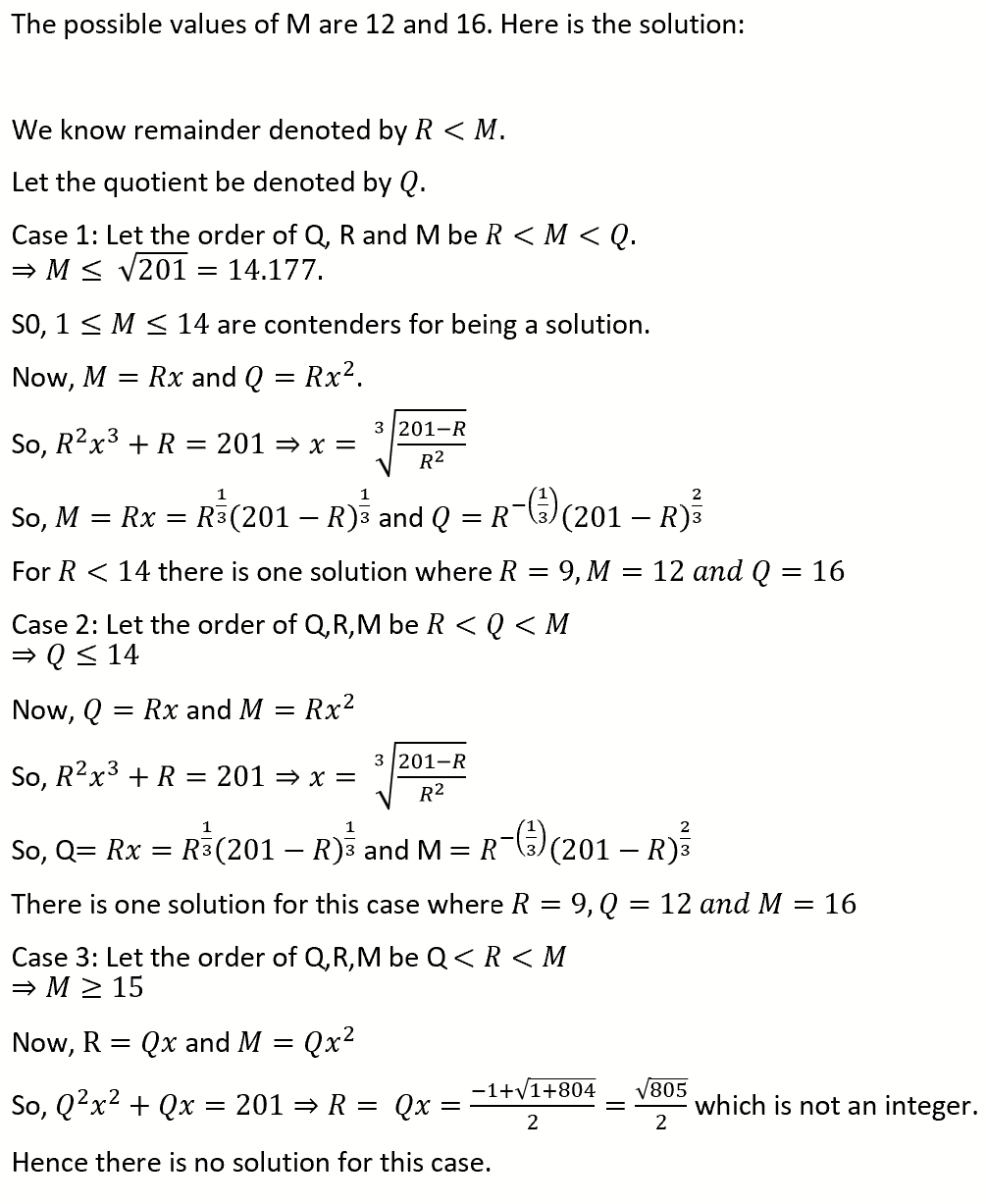The number 201 is divided by a positive integer M.
It is observed that the quotient, remainder, and divisor (that is M itself), but not necessarily in that order, are in geometric sequence.
Determine the possible values of M.
Solution to the Problem:
The required possible values of M are 12 or 16.[EXPLANATION]
Let 201 = dq+r, where d,q an r respectively denote the divisor, quotient and remainder.
Now, we know that r < d and r can be either the first (the lowest) or second element of the geometric sequence.
If r is the second element, then r^2 + r = 201, which does not yield any integer value of r.
Hence, r is the lowest element.
Let the common ratio be x/y.
Then, it follows that:
r * x^2
---------- must be an integer.
y^2
Therefore, r = n * y^2, for some integer n.
Thus, the three terms of the geometric sequence from smallest to largest are:
n * y^2, nxy, n * x^2
Accordingly, (d,q) must correspond to a permutation of (nxy, n*x^2)
So 201 = dq+r, gives:
201 = (nxy)(n*x^2)+ n*y^2; so that, n is a factor of 201, so that :
y= 1, 3, 67, 201
If y = 201, then, 1 = n^2 * x^3 + 201n > 201.
This is a contradiction.
If y = 67, then, 3 = n^2*x^3 + 67n >67, which is a contradiction.
If y =1, then, 201 = n^2 * x^3 + n , which does not yield any positive integer solution.
If y = 3, then, 67 = n^2 * x^3 + 3n, which gives:
(x,n) = (4,1), so that :
(d, q) = (nxy, n * x^2), or (n * x^2, nxy)
= (12, 16), or (16, 12)
Accordingly, the divisor is either 12, or 16
Consequently, M = 12, or M = 16
Here is Ritwik Chaudhuri's solution:

Correctly solved by:
| 1. Colin (Yowie) Bowey | Beechworth, Victoria, Australia |
| 2. Davit Banana | Istanbul, Turkey |
| 3. Dr. Hari Kishan |
D.N. College, Meerut, Uttar Pradesh, India |
| 4. Ritwik Chaudhuri | Santiniketan, West Bengal, India |
| 5. Ivy Joseph | Pune, Maharashtra, India |